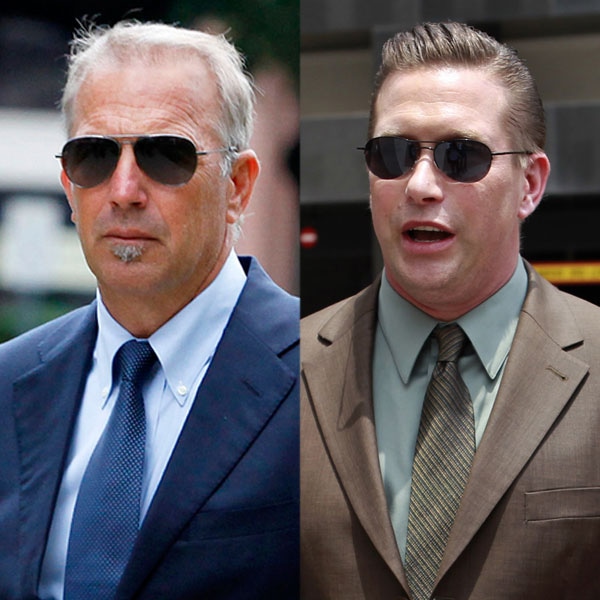 REUTERS/Sean Gardner; AP Photo/Gerald Herbert
REUTERS/Sean Gardner; AP Photo/Gerald Herbert
Stephen Baldwin's putting his best face on a failed argument.
The Usual Suspects star tells E! News exclusively that he is none too thrilled about losing his highly publicized court battle to onetime business partner Kevin Costner, whom Baldwin accused of defrauding him and a friend over the sale of oil-cleanup technology to BP in the wake of 2010's massive Gulf of Mexico oil spill.
But he praised the New Orleans federal jury who ruled against him and was glad to see his suit tried in a court of law.
"Obviously I am disappointed with the jury's verdict," Baldwin tells E! News. "But I am grateful and respect those men and women for their service. The facts in the case remain true and the opportunity to rectify the unjust activities of those involved is a right and freedom that we should all be proud of and grateful for."
On Thursday, after less than two hours of deliberations, a jury declared that the 57-year-old Costner and his business partner Patrick Smith did not dupe the 46-year-old Baldwin and co-plaintiff Spyridon Contogouris out of a lucrative contract with the oil giant and awarded no damages in the case.
The youngest Baldwin brother sued his fellow Hollywood veteran in federal court in December, 2010, demanding more than $17 million he and Contogouris said they should've earned from the sale of 32 of the centrifuges and for Baldwin using his star power to promote them.
The duo alleged that Costner and his associate led them to believe there was no interest in the oil-separating machines (and hid the fact there was a possible buyer in BP), reportedly prompting Baldwin and Contogouris to sell their shares of Ocean Therapy Solutions, the company that manufactures the devices, for $500,000 and $1.4 million respectively.
The jury thought otherwise however.